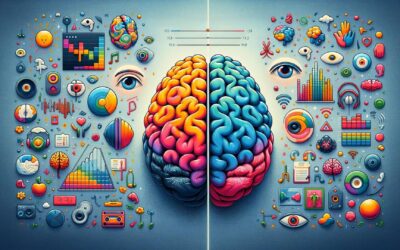Explore the essential role of sleep in learning and memory. This article delves into how sleep impacts cognitive functions, offering real-life examples and actionable tips to improve your sleep quality for enhanced learning and memory retention. Understand the science behind sleep and take steps to unlock your brain’s full potential.
In an era where the hustle culture often glorifies sacrificing sleep to get ahead, the critical importance of rest for our cognitive processes, especially learning and memory, cannot be overstressed. Sleep is not just a period of physical rest but a crucial time for the brain to process and consolidate new information, making it an indispensable part of cognitive health and performance.
The Science of Sleep and Cognitive Functions
Sleep is intricately linked to the way we learn and remember. During sleep, our brain goes through several cycles, including deep sleep and REM (rapid eye movement) sleep. These stages are vital for different cognitive functions. For example, deep sleep is crucial for memory consolidation, where the brain transfers new information from short-term to long-term memory, making it easier to recall in the future.
A study published in the “Journal of Experimental Psychology” demonstrated that participants who slept after learning a new task performed significantly better on subsequent tests compared to those who stayed awake. This highlights how sleep directly impacts our ability to learn and retain new information.
Real-Life Implications of Sleep on Learning and Memory
Consider a student cramming for exams. Despite hours of studying, without adequate sleep, the ability to recall the studied material the next day is compromised. Conversely, a well-rested individual is more likely to have a sharper memory, better focus, and an easier time learning new concepts. This is because sleep has rejuvenated their cognitive functions, making their brain more receptive to absorbing and retaining new information.
In professional settings, the impact of sleep on learning and memory is equally significant. Employees learning new skills or information can perform better, with improved problem-solving abilities and creativity, when they receive adequate sleep. This not only enhances individual performance but can also contribute to the overall success of a team or organization.
Strategies to Enhance Learning and Memory Through Sleep
- Prioritize Sleep: Ensure you get 7-9 hours of quality sleep per night to support cognitive functions.
- Maintain a Consistent Sleep Schedule: Going to bed and waking up at the same time every day helps regulate your body’s internal clock, improving sleep quality.
- Create a Restful Environment: A cool, dark, and quiet bedroom can enhance sleep quality. Consider using earplugs or white noise machines if necessary.
- Limit Screen Time Before Bed: Exposure to blue light from screens can disrupt your sleep cycle. Try to avoid screens at least an hour before bedtime.
- Incorporate Relaxation Techniques: Activities such as reading, meditation, or gentle stretching can help prepare your mind and body for sleep.
Action Point
The undeniable link between sleep, learning, and memory serves as a powerful reminder of the need to prioritize our sleep health. In doing so, we not only enhance our cognitive abilities but also improve our overall quality of life. Starting tonight, assess your sleep habits and make the necessary adjustments to ensure you are giving your brain the rest it needs to function at its best. Remember, by prioritizing sleep, you are not just resting your body; you are also preparing your brain to learn, remember, and perform better in all aspects of your life.
Embrace the power of sleep as a fundamental pillar of cognitive health. Let’s commit to making sleep a non-negotiable part of our daily routine, recognizing its profound impact on our ability to learn and remember. By doing so, we unlock our brain’s full potential, paving the way for academic, professional, and personal growth.
Why Should You Care?
Understanding the role of sleep in learning and memory is essential because it directly impacts our ability to function optimally in our daily lives. From academic performance to professional growth and personal development, the quality of our sleep influences our learning capabilities, memory retention, decision-making skills, and overall cognitive health. By prioritizing sleep, we can enhance our learning efficiency, improve memory, and support our long-term brain health, leading to a more productive and fulfilling life.
Key Takeaways:
- Sleep is Crucial for Cognitive Functions: Quality sleep is essential for the consolidation of memory, aiding in transferring information from short-term to long-term memory.
- Adequate Sleep Enhances Learning and Memory: Getting enough sleep improves our ability to learn new information, retain it, and recall it when needed.
- Consistent Sleep Schedule Benefits Cognitive Performance: Regular sleep patterns help regulate the body’s internal clock, enhancing sleep quality and cognitive functions.
- Sleep Environment Matters: A conducive sleep environment contributes to better sleep quality, which in turn supports cognitive processes.
- Screen Time Affects Sleep: Exposure to blue light from screens before bedtime can disrupt sleep patterns, impacting learning and memory.
Keywords and Definitions:
- Cognitive Functions: Mental processes that involve knowledge, attention, memory, judgment, reasoning, problem-solving, decision making, and language comprehension.
- Memory Consolidation: The process by which short-term memories are transformed into long-term memories, making them stable and long-lasting.
- REM (Rapid Eye Movement) Sleep: A sleep stage characterized by rapid movement of the eyes, low muscle tone, and vivid dreams.
- Sleep Hygiene: Practices and habits that are conducive to sleeping well on a regular basis.
- Blue Light: Light with a blue wavelength, which is emitted by electronic screens and affects the body’s ability to fall asleep.
- Cognitive Health: The health of the brain and its functions, including memory, thinking, and reasoning abilities.
- Sleep Cycle: The progression through various stages of non-REM and REM sleep over the course of a typical night.
- Digital Detox: Taking a break from electronic devices to reduce stress and improve quality of life.
- Memory Retention: The ability to retain and recall information over time.
- Sleep Quality: The quality of sleep, considering factors like how long it takes to fall asleep, the number of awakenings, and the amount of time spent in different sleep stages.
Frequently Asked Questions:
How does lack of sleep affect learning and memory in children and adolescents?
In children and adolescents, lack of sleep can significantly impair learning and memory by reducing attention span, problem-solving abilities, and creativity. It can lead to difficulties in school, including lower grades and challenges in social interactions. Ensuring adequate sleep is crucial for their development and academic performance.
Can improving sleep quality reverse cognitive decline?
While sleep cannot completely reverse cognitive decline, especially in cases of neurodegenerative diseases, improving sleep quality can enhance cognitive functions and slow the progression of memory loss. Good sleep hygiene and addressing sleep disorders can support brain health and cognitive abilities in aging populations.
Myth Buster:
Myth: More sleep is always better for learning and memory.
Reality: While adequate sleep is crucial for cognitive functions, too much sleep (over 9-10 hours for adults) can be counterproductive and may indicate underlying health issues. The quality of sleep, rather than just quantity, plays a more significant role in enhancing learning and memory.
Let’s Talk:
- Have you noticed a difference in your learning abilities or memory based on your sleep patterns?
- What changes can you make in your daily routine to improve your sleep quality and, by extension, your cognitive performance?
- How do you balance technology use in the evening to ensure it doesn’t interfere with your sleep?
I encourage you to share your thoughts and experiences in the comment section below. Let’s learn from each other’s strategies for optimizing sleep to enhance our learning and memory.










0 Comments